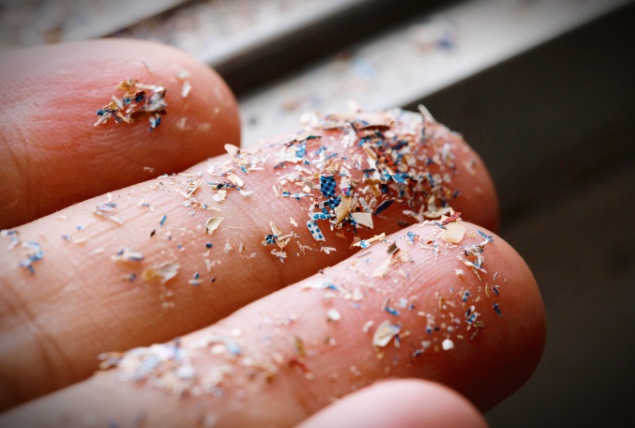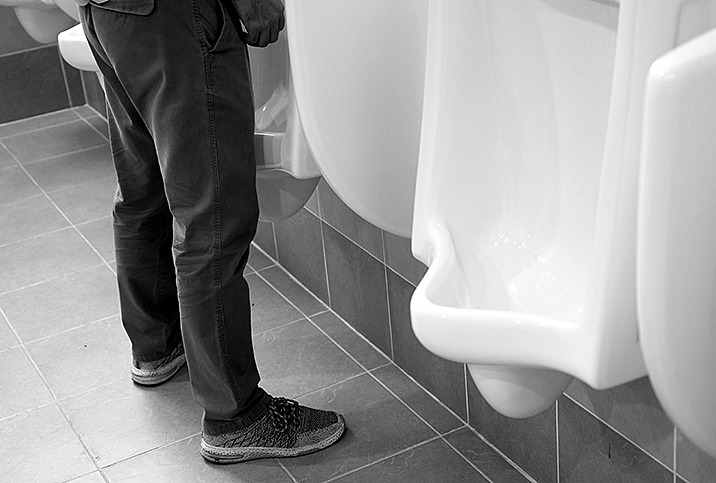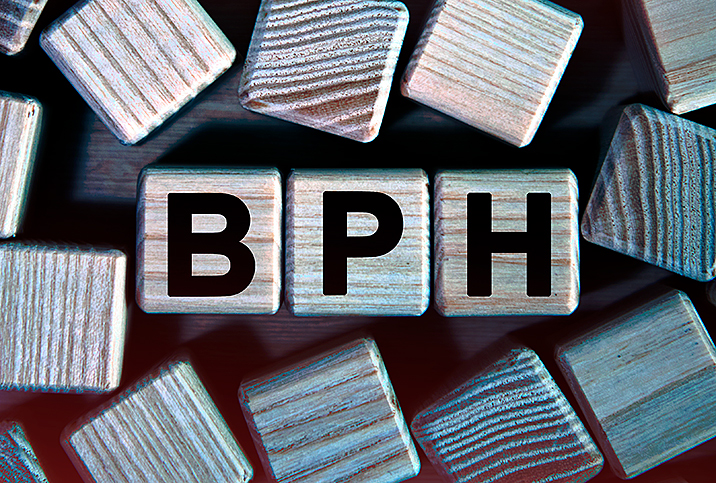Got BPH? There's a Medication for That

The jokes about aging men and their prostate issues are undoubtedly as old as humans. Someday, archaeologists will surely discover cave paintings drawn by snickering youths clowning on their elders for their frequent nightly trips to the cave-toilet.
But for the estimated 14 million men in the United States with benign prostatic hyperplasia (BPH)—an enlarged prostate gland—the discomfort and annoyance that come with a frequent need to urinate and other urinary issues aren't funny. Although it's noncancerous and not life-threatening, BPH can be a debilitating condition.
Unlike a few decades ago, when surgery was the only option for tangible relief, today a wide array of medication-based treatments are available for BPH.
BPHuh?
In a way, if you get BPH, you should count yourself lucky.
First of all, congratulations on reaching a certain age.
About 50 percent of men between ages 51 and 60 are affected by BPH, and the number steadily climbs with age, according to the National Institute of Diabetes and Digestive and Kidney Diseases. For instance, if you make it to 80, there's a 90 percent chance you'll have an enlarged prostate.
Second, be grateful that for all the inconveniences caused by BPH, it's at least noncancerous.
The condition entails the enlargement of the prostate, a walnut-sized gland that sits at the neck of the bladder where the urethra starts. The growth can affect urine flow because the prostate essentially surrounds the urethra right where urine enters it from the bladder.
"BPH is a common problem," said Richard Heppe, M.D., of the Denver-based Urology Center of Colorado. "[But] there are medications that are used to help people urinate more easily."
The various approaches medicines take to combat BPH are almost as diverse as the men who develop the condition. We'll focus on three of the most common drug classes and the different ways they approach BPH.
Alpha blockers
The alpha blocker class of BPH drugs, including brands such as Flomax (generic: tamsulosin), is probably the most often prescribed, according to Neel Parekh, M.D., a urologist with the Cleveland Clinic.
"[Alpha blockers] work pretty quickly and help relax the smooth muscle in the bladder and prostate," Parekh said. "They help with the urine stream as far as the force of the stream and urine flow. [But] they don't really change the size of your prostate."
Other alpha blockers that doctors might prescribe include doxazosin (Cardura), alfuzosin (Uroxatral), silodosin (Rapaflo), prazosin (Minipress) and terazosin (Hytrin).
Alpha blockers have side effects, the most serious of which is lowering your blood pressure. For older patients, this can mean orthostatic hypotension: A person's blood pressure drops when they stand up, causing light-headedness and other symptoms.
Another possible side effect is retrograde ejaculation.
"When you ejaculate, the bladder is supposed to close and the semen takes the path of least resistance, so it goes forward out of the penis," Parekh said. "But with the medication, it relaxes the bladder and it doesn't close as it normally should, so the path of least resistance is back into the bladder."
The condition is harmless if you're not trying to conceive. It simply results in orgasms without visible ejaculation, and the semen is instead passed with the man's urine.
5-alpha reductase inhibitors
Another class of BPH drugs, 5-alpha reductase inhibitors, alters your testosterone production to prevent prostate growth. The two main types are finasteride (Proscar) and dutasteride (Avodart).
Finasteride may shrink the prostate, but the process can take years, with the average response being a 30 percent reduction over three years, according to Heppe. He added it doesn't work well for men whose prostate size is normal or only mildly enlarged.
"Those will typically be used as an adjunct, so with an alpha blocker, and [for men who] have prostates larger than 40 grams," Parekh said.
Another consideration with 5-alpha reductase inhibitors is potential sexual side effects, such as erectile dysfunction (ED) and decreased sex drive. Because the drugs block testosterone from converting to the sex hormone dihydrotestosterone (DHT), they reduce the size of the prostate. However, doctors need to counsel patients about possible libido changes, Parekh warned.
Interestingly, finasteride is the same drug many men take to avoid baldness, Heppe said. It's marketed as Propecia for hair loss with a 1-milligram dose, while the Proscar dose is 5 milligrams daily.
Phosphodiesterase-5 inhibitors
A lesser-known entrant in the BPH medication arsenal is the phosphodiesterase-5 inhibitor class, which includes tadalafil, the generic name for Cialis, a well-known ED drug. It's also prescribed for men who experience the sexual side effects of other BPH meds; however, it's a BPH reliever in its own right.
Tadalafil helps men get erections by relaxing the smooth muscles and arteries in the penis, allowing for more blood flow when a man is aroused. One theory is it works similarly on the muscle in the prostate, helping it relax and ease the constriction on the urethra.
The truth is, doctors are not entirely sure how tadalafil works on BPH.
"They don't really know why, but [Cialis] has been shown to improve urinary symptoms," Parekh said. "I commonly prescribe tadalafil. It's the only FDA-approved [daily] ED med, and it's also approved for BPH. I use that often for guys who have both issues and for guys who are more worried about sexual side effects."
Thanks to the advances in medications, the days of suffering in silence with reduced urine flow and frequent trips to the bathroom are long gone. Given the variety of medications, men of any age or level of sexual activity can lead a normal life, despite having BPH.














